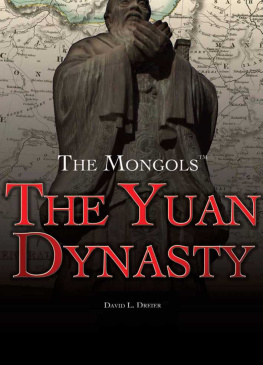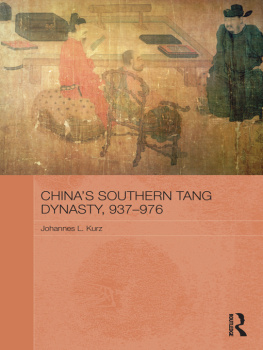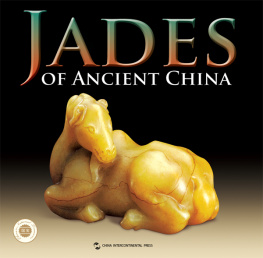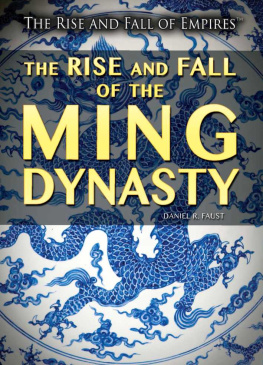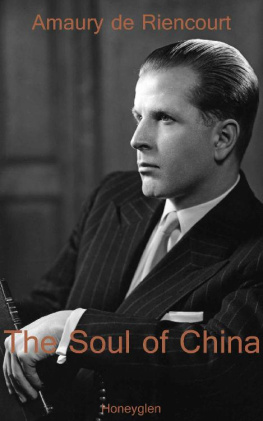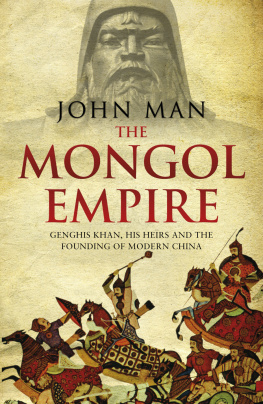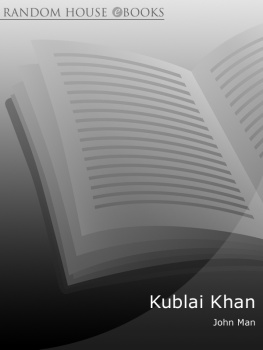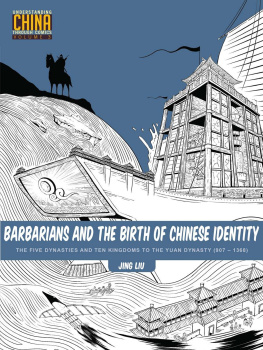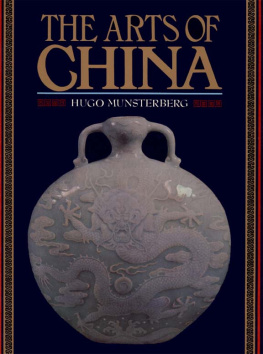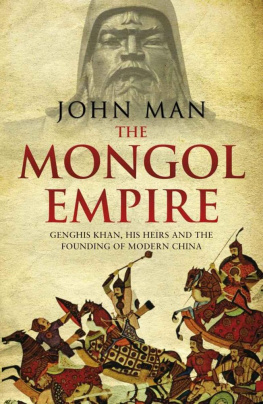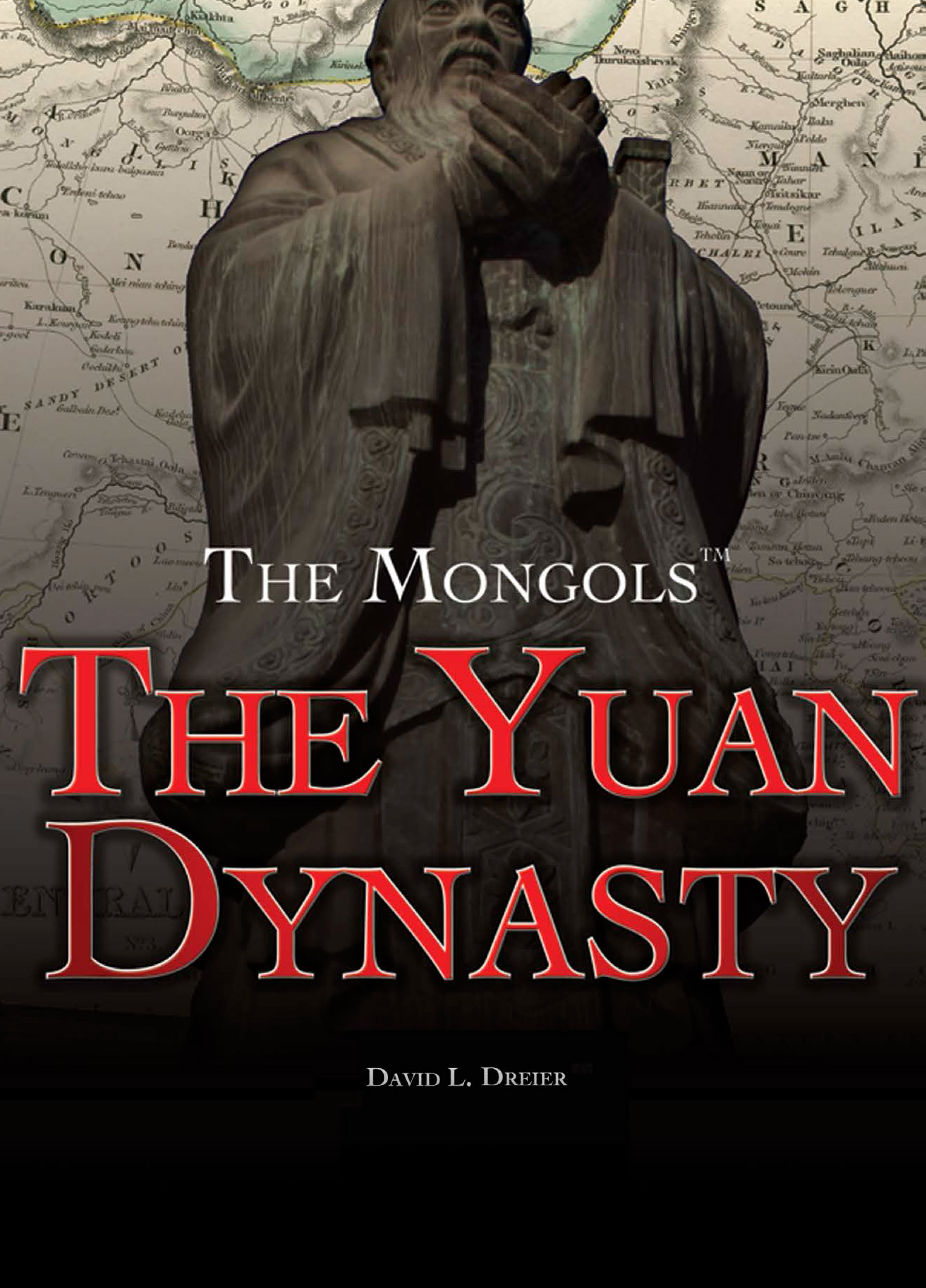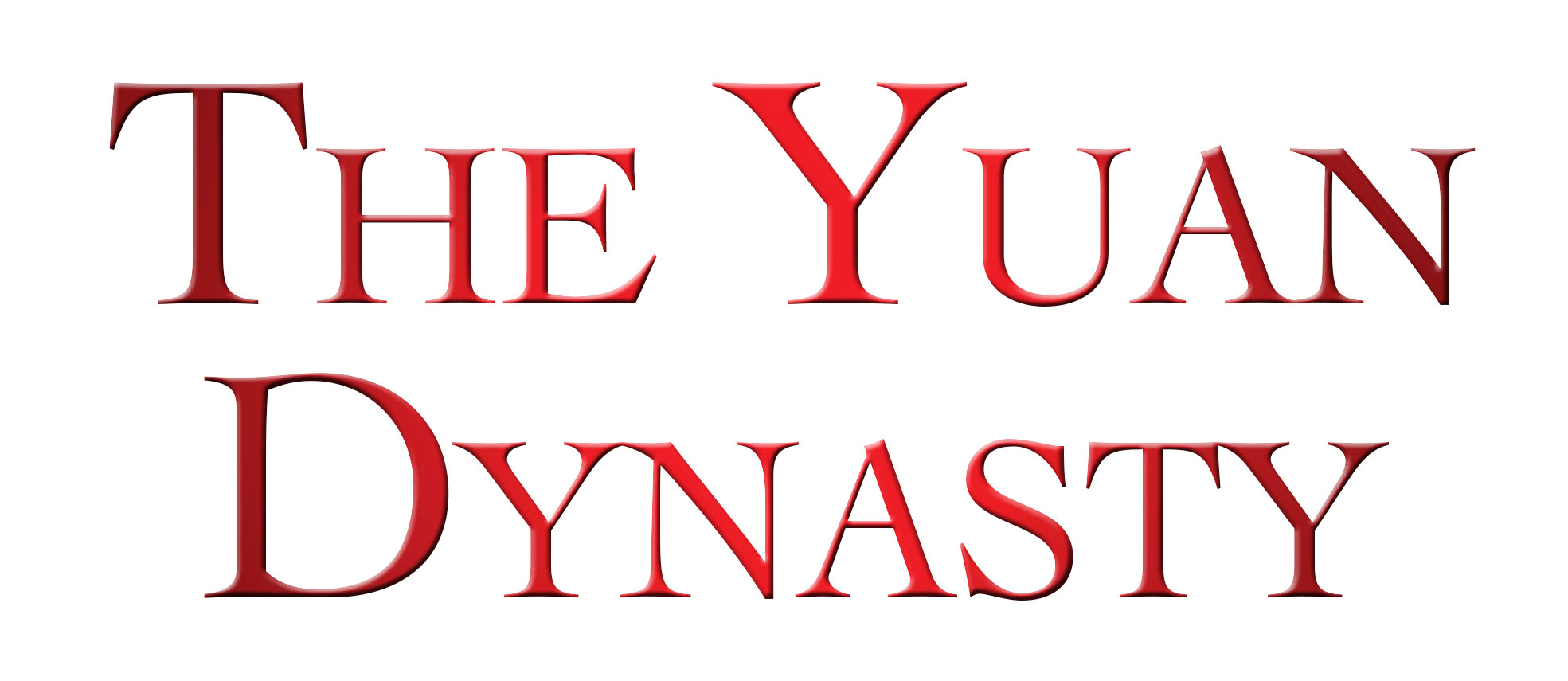- Chapter 1
Kublai Khan Emerges Triumphant - Chapter 2
Establishing the Yuan Dynasty - Chapter 3
Everyday Life in the Yuan Dynasty - Chapter 4
Conquest of the Southern Song Dynasty - Chapter 5
Further Yuan Military Exploits - Chapter 6
Decline and Fall of the Yuan Dynasty
Published in 2017 by The Rosen Publishing Group, Inc.
29 East 21st Street, New York, NY 10010
Copyright 2017 by The Rosen Publishing Group, Inc.
First Edition
All rights reserved. No part of this book may be reproduced in any form without permission in writing from the publisher, except by a reviewer.
Library of Congress Cataloging-in-Publication Data
Names: Dreier, David Louis, author.
Title: The Yuan Dynasty / David L. Dreier.
Description: First edition. | New York : Rosen Publishing, 2017. | Series: The Mongols | Includes bibliographical references and index. | Audience: Grade 7 to 12.
Identifiers: LCCN 2015047218| ISBN 9781499463682 (library bound) | ISBN 9781499463668 (pbk.) | ISBN 9781499463675 (6-pack)
Subjects: LCSH: ChinaHistoryYuan dynasty, 1260-1368.
Classification: LCC DS752 .D74 2016 | DDC 951/.025dc23 LC record available at http://lccn.loc.gov/2015047218
Manufactured in China
CONTENTS
Chapter 1
Kublai Khan Emerges Triumphant
Chapter 2
Establishing the Yuan Dynasty
Chapter 3
Everyday Life in the Yuan Dynasty
Chapter 4
Conquest of the Southern Song Dynasty
Chapter 5
Further Yuan Military Exploits
Chapter 6
Decline and Fall of the Yuan Dynasty
I ntroduction
I n the 1250s, after half a century of conquests, the Mongol Empire was reaching its greatest east-west extent. But there were still lands the Mongols lusted for in their pursuit of territory, power, and wealth.
In 1251, a grandson of Genghis Khans, Mongke, was voted great khan by his kinsmen. Great khan was the highest position that a Mongol leader could aspire to. Mongke Khan sent a brother, Hulegu, to subdue Iraq and Persia. Hulegus brutal conquest of Baghdad in 1258 ended with a massacre that left as many as a million people dead.
To the east lay China. Genghis Khan had conquered northern China, but he had been unable to bring the Southern Song dynasty into the empire. His son Ogedei Khan also failed to conquer southern China in a series of military campaigns from 1235 to 1245.
Mongke Khan was determined, once and for all, to defeat the Song dynasty. In 1253, he gave the assignment to another of his brothers, Kublai. Although Kublai lacked military expertise, he was already in charge of government affairs in northern China, and he had acquired an in-depth knowledge of Chinese culture. Thus, he seemed the logical choice for the operation.
Kublai launched some limited attacks on the Song dynasty, but his progress was slow. Growing fat and with a greater appetite for food than fighting, Kublai had little enthusiasm for personally heading a military operation.
Exasperated with his brothers lack of success, Mongke summoned Kublai to the Mongol capital, Karakorum, to answer for his failure. Kublai, in a dangerous position and fearing that he might be executed, threw himself on his brothers mercy. He was forgiven, but Mongke decided that he himself would have to take charge of the Song campaign. Before leaving, he appointed his youngest brother, Ariq Boke, ruler of Mongolia, to take over in his absence.

The Mongols were adept at fighting on horseback. Mongol warriors led by Genghis Khan and his immediate successors tried, unsuccessfully, to conquer all of China.
In 1258, Mongke led an army against the Southern Song dynasty. Within a year, his forces were closing in on the Song regions. But then, in August 1259, Mongke became ill and died. The cause of his death was never confirmed. It could have been cholera, dysentery, or an infected arrow wound.
With Mongke Khans death, action against the Song once again came to an end. The question now was who would assume the mantle of great khan. In 1260, representatives of all the Mongol families proclaimed Ariq Boke to be the great khan. But Kublai refused to accept that decision. He summoned his own Mongol assembly, which named him great khan. To solidify his support among the Chinese, he also proclaimed himself emperor of China.
The two brothers now vied for rule of the Mongol world. The one who prevailed Kublai Khanwould become one of the most famous rulers of China. Under Kublais ruling dynasty, the Yuan dynasty, China would be transformed. This was the China seen and described by the Venetian traveler Marco Polo. But it was a China that would last for less than one hundred years.
I n 1260, Kublai and Ariq Boke went to war over succession to the throne of great khan. Because the two brothers were both sons of Genghis Khans youngest son, Tolui, the conflict became known as the Toluid Civil War.
B rother A gainst B rother
Kublai had some important advantages over Ariq Boke. To begin with, he commanded a larger army consisting of both Chinese soldiers and Mongol warriors. In addition, he controlled the food supply of Karakorum, Ariq Bokes center of operations. Located on the Mongolian steppe, where agriculture was almost impossible, Karakorum simply could not meet its food needs on its own. It required a constant supply from China. Kublai cut off food shipments to Karakorum and then sent his army to vanquish Ariq Bokes forces.
Karakorum fell to Kublai Khan in 1261, but Ariq Bokes army retook the city. It would, however, be a temporary victory for him. Although his men fought tenaciously, they were increasingly weakened by hunger. Ariq Bokes army was further hampered by a terrible threat to any Mongol group: zud, or animal famine. The climate of the steppe had been growing colder, which reduced the already sparse rainfall. As a result, there was not enough grass for the horses of Ariq Bokes army to feed on.
A Persian illustration from the 1500s depicts the forces of Kublai Khans younger brother, Ariq Boke, defeating a rival in his quest for supreme power.
By late 1263, Ariq Bokes army was coming apart, and a particularly harsh winter sealed its fate. With his men and horses starving, and facing a much larger army, Ariq Boke knew the end had come. In 1264, he surrendered to Kublai. The victorious Kublai had many of Ariq Bokes supporters tried and executed. But he spared Ariq Bokes lifefor the time being.
N o M ore G reat K hans
Despite styling himself as great khan of the entire Mongol Empire, Kublai was never universally recognized as such in the Mongol world. Mongke Khan would be the last Mongol ruler to be the undisputed great khan of the empire. At this point, Kublai was considered more Chinese than Mongol, which did not sit well with his kinsmen. But Kublais fellow Mongols did not confer the title of great khan on anyone else either. The refusal to accept any individual as great khan reflected a new reality: the Mongol Empire was beginning to fragment. It was simply too huge to be administered as a single entity.

